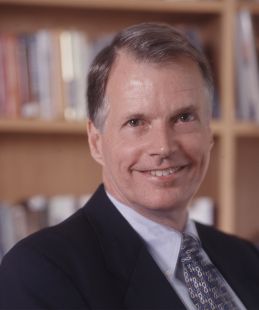
Thomas W. Malone is the Patrick J. McGovern Professor of Management at the MIT Sloan School of Management and the founding director of the MIT Center for Collective Intelligence. He was also the founding director of the MIT Center for Coordination Science and one of the two founding co-directors of the MIT Initiative on "Inventing the Organizations of the 21st Century". Professor Malone teaches classes on leadership and information technology, and his research focuses on how new organizations can be designed to take advantage of the possibilities provided by information technology.
For example, Professor Malone predicted, in an article published in 1987, many of the major developments in electronic business over the last decade: electronic buying and selling, electronic markets for many kinds of products, "outsourcing" of non-core functions in a firm, and the use of intelligent agents for commerce. The past two decades of Professor Maloneís research are summarized in his critically acclaimed book, The Future of Work: How the New Order of Business Will Shape Your Organization, Your Management Style, and Your Life (Harvard Business School Press, 2004). This book has been translated into Chinese, Japanese, Korean, Portugese, Spanish, and Russian.
Professor Malone has also published over 75 articles, research papers, and book chapters; he is an inventor with 11 patents; and he is the co-editor of three books: Coordination Theory and Collaboration Technology (Erlbaum, 2001), Inventing the Organizations of the 21st Century (MIT Press, 2003), and Organizing Business Knowledge: The MIT Process Handbook (MIT Press, 2003).
Malone has been a cofounder of three software companies and has consulted and served as a board member for a number of other organizations. He speaks frequently for business audiences around the world and has been quoted in numerous publications such as Fortune, New York Times, and Wired. Before joining the MIT faculty in 1983, Malone was a research scientist at the Xerox Palo Alto Research Center (PARC) where his research involved designing educational software and office information systems. His background includes a Ph.D. and two masterís degrees from Stanford University, a B.A. (magna cum laude) from Rice University, and degrees in applied mathematics, engineering-economic systems, and psychology.
Last updated: February 17, 2010
